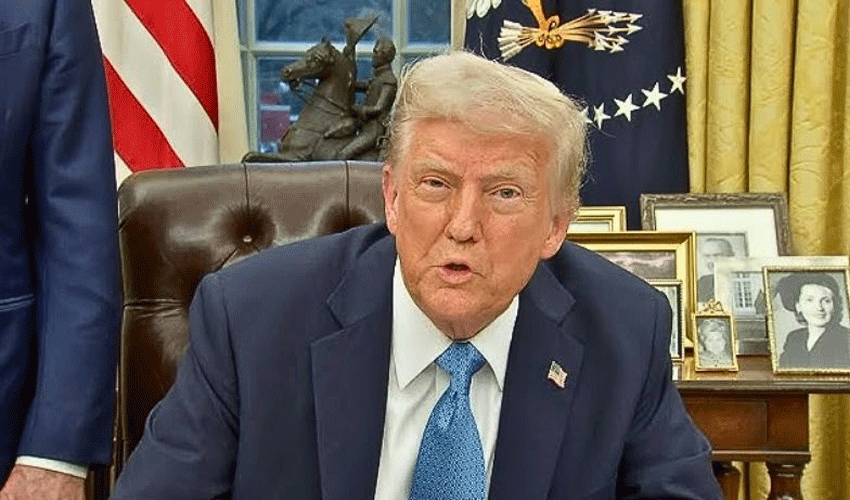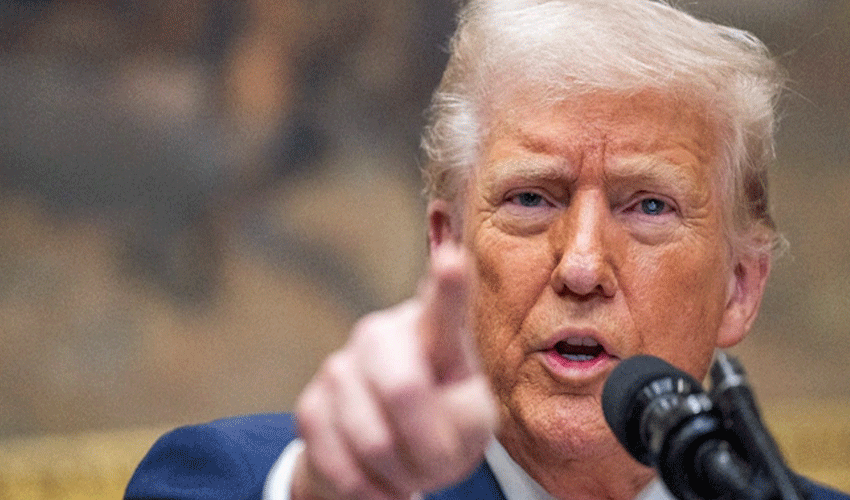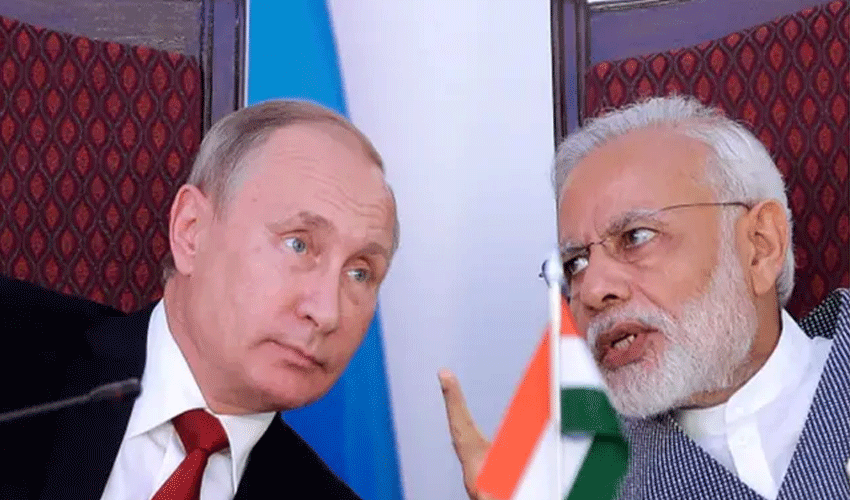Global financial markets took a sharp downturn on Monday after US President Donald Trump announced that his administration would proceed with imposing 25 per cent tariffs on goods imported from Canada and Mexico, effective Tuesday.
The move, which has reignited concerns of a trade war in North America, sent US stocks tumbling, with the Dow Jones Industrial Average dropping 649.67 points, or 1.48 per cent. The S&P 500 fell by 104.78 points, or 1.76 per cent, while the Nasdaq Composite plunged 497.09 points, or 2.64 per cent. The Mexican peso and the Canadian dollar also depreciated following the announcement.
"They're going to have to have a tariff," Trump said at the White House. "So, what they have to do is build their car plants, frankly, and other things in the US, in which case they have no tariffs."
The tariffs, set to take effect at 12:01 am EST on Tuesday, will apply broadly across imports from Canada and Mexico, including a 10 per cent duty on Canadian energy products. Trump defended the decision, asserting that negotiations to curb fentanyl flows into the US had failed.
Markets rattle, industry voices concern
Trump's decision has sparked alarm among business leaders and economists, who warn that the tariffs—covering over $900 billion in annual imports—could disrupt the highly integrated North American economy.
Automakers bore the brunt of the stock market rout, with General Motors' shares falling by 4 per cent and Ford's declining by 1.7 per cent. Industry experts predict that US consumers could face price hikes on vehicles and other goods within days.
"The automobile sector, in particular, is likely to see considerable negative consequences, not only because of the disruption of the supply chains that crisscross the three countries in the manufacturing process but also because of the expected increase in the price of vehicles, which can dampen demand," said Gustavo Flores-Macias, a public policy professor at Cornell University.
Mexico and Canada signal retaliation
While Mexican officials have not formally responded, President Claudia Sheinbaum stated that her government was prepared for any scenario.
"We have a plan B, C, D," Sheinbaum told reporters in Mexico City, without providing specifics. She added that Mexico had stepped up anti-drug efforts and was exploring additional measures on Chinese imports.
Canadian Foreign Minister Mélanie Joly said Ottawa was bracing for the fallout. "There's a level of unpredictability and chaos that comes out of the Oval Office, and we will be dealing with it," she remarked.
Further tariff actions on the horizon
Trump also reaffirmed that reciprocal tariffs would take effect on April 2 against countries that impose duties on US products. Additionally, he announced plans to raise tariffs on all Chinese imports to 20 per cent, up from the previous 10 per cent, citing Beijing’s failure to curb fentanyl shipments.
"China has not taken adequate steps to alleviate the illicit drug crisis," Trump said. According to the US Centers for Disease Control and Prevention, synthetic opioids, primarily fentanyl, claimed 72,776 lives in the country in 2023.
Over the past month, Trump has escalated his tariff agenda, reviving investigations into digital services taxes, lumber imports, and copper trade. A fresh probe into imports of Chinese-built ships has also been launched, with proposed fees of up to $1.5 million per vessel entry.
Economic fallout looms
Critics argue that the tariff escalation could have broader repercussions. Desmond Lachman, a senior fellow at the American Enterprise Institute, warned that the policy could keep inflation elevated and potentially tip the global economy into recession.
"There’s no question that Trump’s ‘tariffs on steroids’ strategy risks exacerbating inflationary pressures while further straining international trade relations," Lachman said.
Democratic lawmakers also voiced opposition, with Representative Suzan DelBene stating that the tariffs would impose financial burdens on American households.
"No president should be able to raise taxes without a vote in Congress," DelBene said.
Despite mounting concerns, White House trade adviser Peter Navarro defended the decision, arguing that the inflationary impact would be minimal.
"The president knows that in order to get to a world where America is strong and prosperous, with real wages going up and more factory jobs, this is the path he's chosen," Navarro told CNBC.



























